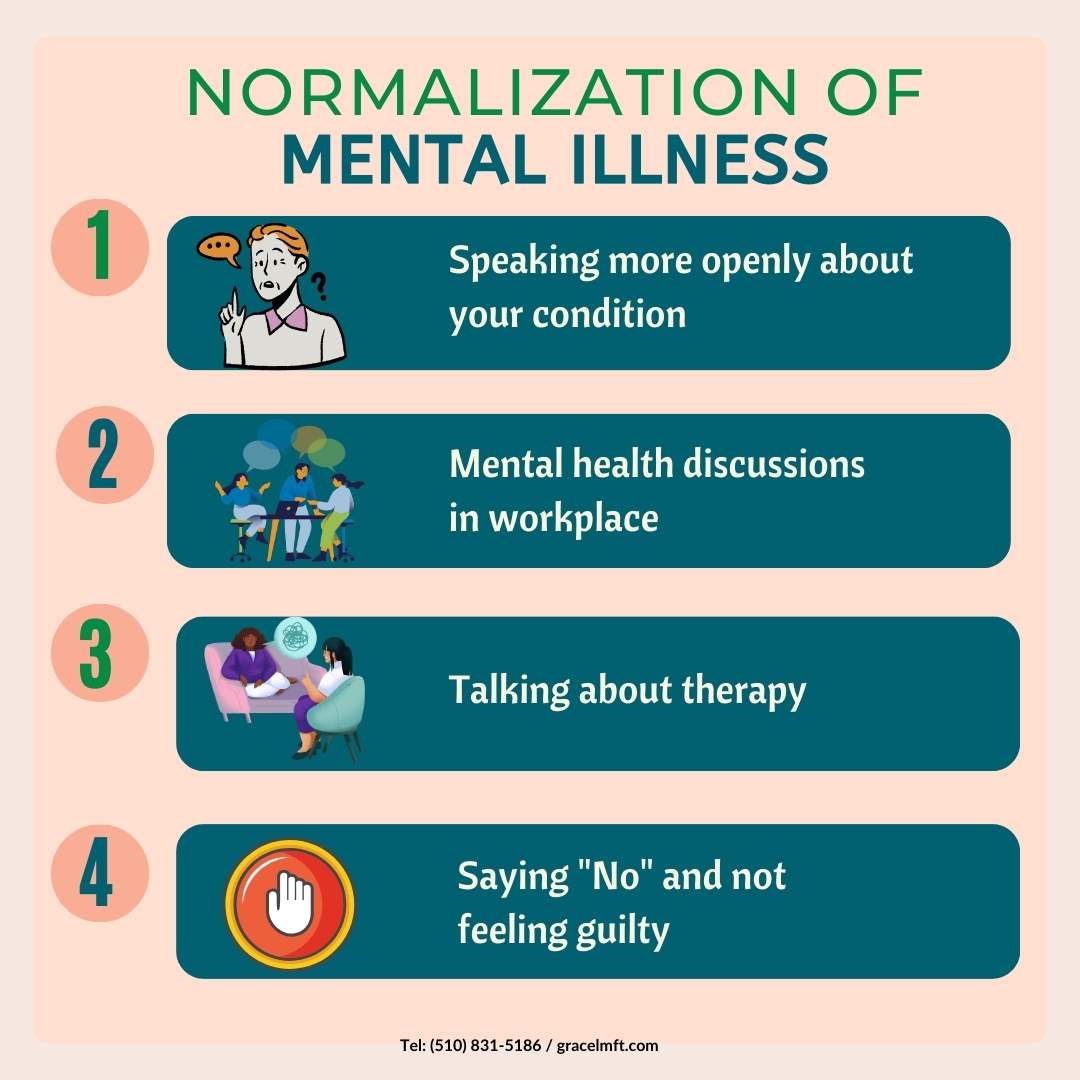The Normalization of Mental Illness

The Normalization of Mental Illness: Breaking the Stigma, One Conversation at a Time
Introduction:
Mental health has long been a topic shrouded in silence and stigma. However, there has been a growing movement towards normalizing mental illness in recent years. This shift is crucial as it encourages open conversations about mental health, promotes understanding and empathy, and helps individuals seek the support they need. In this blog post, we will explore four key aspects of normalizing mental illness: speaking openly about your condition, having mental health discussions in the workplace, talking about therapy, and learning to say “no” without guilt.
- Speaking more openly about your condition:
One of the most powerful ways to normalize mental illness is by sharing personal experiences openly. By breaking the silence surrounding our struggles with mental health conditions such as anxiety or depression, we create an environment where others feel safe to do the same. Sharing our stories helps reduce stigma and fosters empathy and understanding among friends, family members, and even strangers.
- Mental health discussions in the workplace:
The workplace plays a significant role in our lives; therefore, creating an environment that supports employees’ mental well-being is essential. Normalizing mental illness at work involves encouraging open conversations about stress management techniques or seeking help when needed. Employers can implement policies that prioritize employee well-being while providing resources for support, such as counseling services or flexible work arrangements.
- Talking about therapy:
Therapy has proven to be an effective tool for managing various mental health conditions; however, it still carries some stigma for many individuals. By discussing therapy openly and honestly with others – whether it’s friends or colleagues – we can help break down barriers associated with seeking professional help. Sharing positive experiences from therapy sessions can encourage others to consider this valuable resource without feeling ashamed or judged.
4: Saying “No” and not feeling guilty:
In today’s fast-paced world, becoming overwhelmed with commitments and obligations is easy. Normalizing mental illness means recognizing the importance of setting boundaries and prioritizing self-care. Learning to say “no” without guilt is crucial to maintaining good mental health. By openly discussing the need for self-care and setting limits, we can create a culture that values well-being over constant productivity.
Conclusion:
The normalization of mental illness is an ongoing process that requires collective effort from individuals, communities, and institutions. We can break down barriers surrounding mental health stigma by speaking openly about our conditions, fostering mental health discussions in the workplace, talking about therapy positively, and learning to set boundaries without guilt.
Remember that seeking support is not a sign of weakness but rather strength. Let us continue to promote understanding and empathy while creating a society where everyone feels comfortable discussing their mental health challenges without fear or judgment.